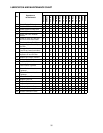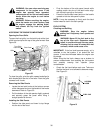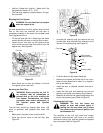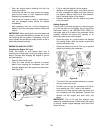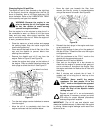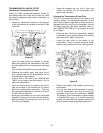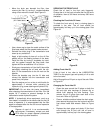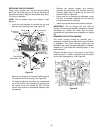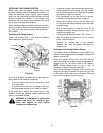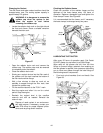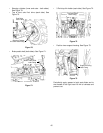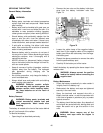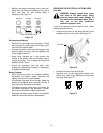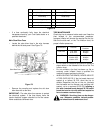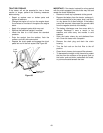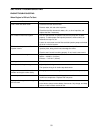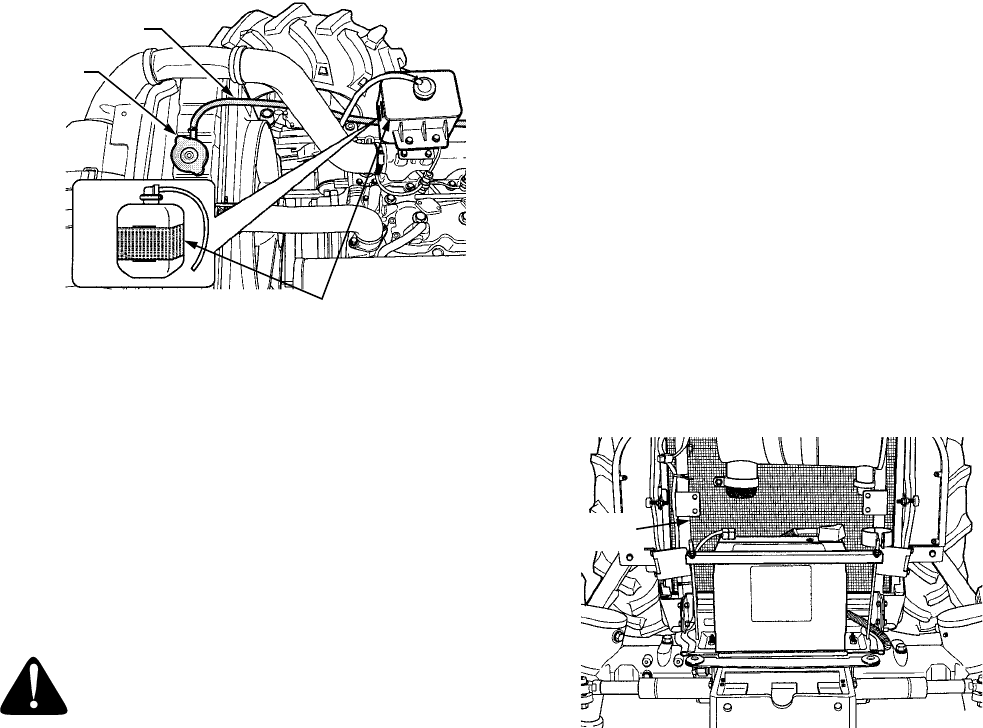
43
SERVICING THE COOLING SYSTEM
Before each use, the engine coolant level in the
overflow reservoir should be checked to ensure it is
within the operating range. Engine coolant absorbs
heat from the engine and transfers the heat to the air
flowing through the radiator. If the coolant level
becomes low, the engine may overheat and could
cause severe damage to the engine.
Use a permanent type antifreeze containing corrosion
and rust inhibitors. Dilute the antifreeze with water at a
1:1 ratio to mix the coolant solution (50% antifreeze :
50% water).
Checking and Adding Coolant
Check the coolant level in the overflow reservoir
before each use. See Figure 65.
Figure 65
If the level is below the lower line on the reservoir,
add coolant to the reservoir as follows:
• If coolant level is low due to evaporation, refill
with water only.
• If coolant level is low due to leakage, refill with
the appropriate mixture of anti freeze and water.
If the reservoir is empty, the coolant level in the
radiator should be checked before operating the
tractor. Proceed as follows:
WARNING: It is dangerous to remove the
radiator cap when the system is hot.
Allow the system to cool before
removing the radiator cap.
• Locate the radiator cap beneath the access door
at the forward end of the hood. Turn the radiator
cap counterclockwise to the first stop to release
any pressure. Refer to Figure 65.
• Push downward on the cap and turn counter-
clockwise until the cap stops then lift cap off.
• Slowly pour coolant mixture into the filler neck
until the level reaches the bottom of the filler neck
overflow flange.
• Wait a few minutes to allow as much air as
possible to escape through the filler neck, then
reinstall the radiator cap.
• Fill the overflow reservoir to the "FULL" mark.
• Start the engine and allow it to run for a short
period. Stop the engine.
• Recheck the coolant level in the overflow
reservoir and refill as needed. Reinstall the
reservoir cap.
Checking and Cleaning Radiator Screen
The radiator screen is designed to catch debris, and
prevent it from clogging the air passages between the
radiator cooling fins.
Check the radiator screen daily and blow off any
minor accumulations of debris using compressed air
directed from the fan shroud side of the radiator.
NOTE: During certain times of year it may be
necessary to clean the screen more often.
If the screen becomes extremely dirty, remove the
wing bolt and slide the screen out from the right side
of the tractor. Flush the screen with water. Reinsert
the screen and secure with the wing nut.
Figure 66
Overflow
Overflow Tube
Radiator
Reservoir
Cap
Radiator
Screen



